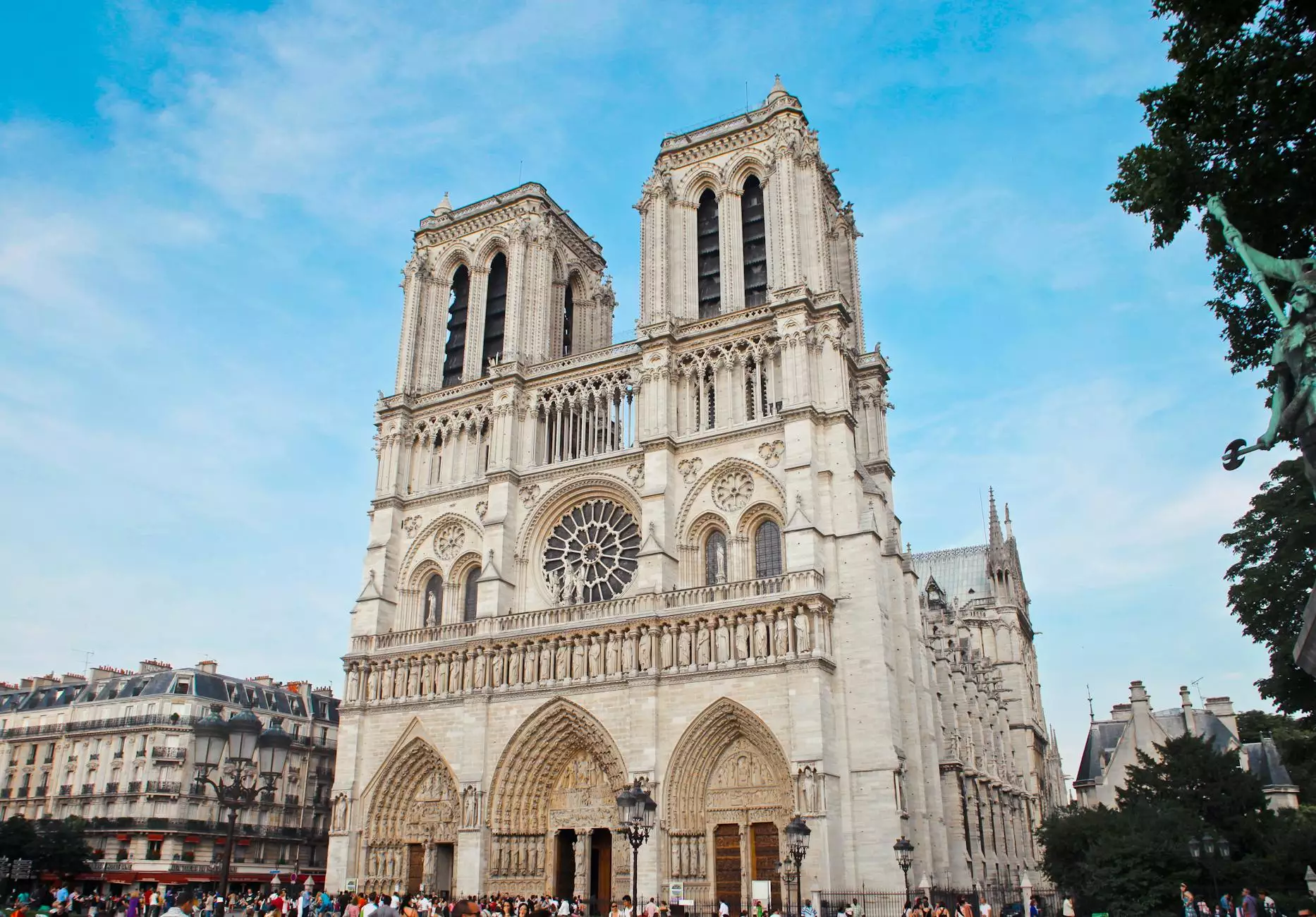Understanding Zion: Is Zion the Church? A Comprehensive Exploration of Zion in Religious Contexts

In the realm of religious studies and spiritual communities, the term Zion holds profound significance. Often surrounded by questions and interpretations, many wonder is Zion the church or how it relates to various religious organizations like synagogues, churches, and other spiritual entities. This comprehensive article aims to delve deeply into the history, symbolism, and contemporary relevance of Zion, providing clarity and insight into its role within different faith traditions.
Historical Origins of Zion in Religious Traditions
The concept of Zion traces back thousands of years, originating in ancient Israel and evolving through biblical narratives and religious texts. Originally, Zion referred to a specific geographical location—Mount Zion in Jerusalem—recognized as the spiritual and political heart of the Jewish people. Over centuries, Zion has become emblematic of divine promise, spiritual homeland, and covenantal relationship with God.
In Jewish tradition, Zion is synonymous with Jerusalem, representing not only a literal geographic site but also an ideal of divine presence and divine favor. The Psalms and prophetic writings often allude to Zion as the sacred city and the future hope for redemption and messianic fulfillment.
Christianity adopted the symbolism of Zion, transforming it from a physical city to an allegorical locale representing the Kingdom of God, spiritual Jerusalem, or the church itself. The Apostle Paul's writings, for instance, refer to Zion in a spiritual sense, emphasizing the community of believers as a new Zion or spiritual Jerusalem.
The Significance of Zion in Contemporary Religious Contexts
Today, Zion continues to hold a central place in various religious dialogues, particularly within Jewish and Christian communities, but also within other spiritual organizations seeking to understand divine dwelling and community unity.
Many believe that Zion signifies more than a physical place; it embodies the divine presence manifested through faith communities, spiritual gatherings, and sacred spaces. As such, questions like is Zion the church are common as followers seek to understand how Zion functions within their faith practices.
Distinguishing Between Zion and the Church
To answer is Zion the church, it is essential to clarify definitions and roles. The term church generally refers to a community of believers, primarily within Christianity, organized around worship, doctrine, and spiritual fellowship. In contrast, Zion, especially in biblical tradition, often symbolizes an ideal or divine realm, a spiritual homeland, or an end-time sanctuary.
However, in many religious communities, Zion and the church are intertwined concepts. For example, some Christian denominations view the church as the earthly expression of Zion, a spiritual city built on faith, love, and divine governance. Conversely, in Jewish contexts, Zion remains primarily a geographical and spiritual symbol associated with Jerusalem rather than a specific church or religious organization.
To distinguish further:
- Zion: A biblical symbol representing divine promise, spiritual homeland, or the city of God. It is often used allegorically in Christian texts to denote God's redeemed people or divine presence.
- The Church: An organized community of believers, often with established doctrines, rituals, and leadership structures, serving as the physical and spiritual assembly for worship and spiritual growth.
The Role of Zion in Synagogues, Churches, and Religious Organizations
In Jewish Synagogues
In Jewish tradition, Zion is deeply embedded in liturgy and national identity. Synagogues, as places of worship, serve as contemporary expressions of Zion's spiritual significance. They are seen as gathering places that reconnect adherents to their ancestral homeland and divine covenant.
In Christian Churches
Many Christian churches interpret Zion as the Heavenly City or the Kingdom of God. It serves as a metaphor for divine society and spiritual fulfillment. Christian teachings emphasize building the church as a spiritual Zion—an assembly of believers privileged to participate in God's divine plan. Prominent passages like Hebrews 12:22 describe believers as coming to "Mount Zion," suggesting the church's role as a spiritual Zion on earth.
In Broader Religious Organizations
Various other faith-based groups and movements incorporate Zion symbolism into their doctrines, emphasizing spiritual renewal, divine presence, and societal harmony. These organizations often view their congregations as modern-day Zion or as embodying the divine ideals represented historically by God's land and city.
Analyzing the Question: Is Zion the Church?
The question, is Zion the church, is nuanced and depends heavily on theological perspectives and cultural contexts. From a biblical and theological standpoint:
- If Zion is interpreted as the divine presence, spiritual community, or the kingdom of God, then many Christian denominations see the church as a manifestation or fulfillment of Zion within the earthly realm.
- If Zion is taken as the literal city of Jerusalem, then it is distinct from the church, though spiritually connected via biblical prophecy and divine promises.
- In modern spiritual understandings, Zion can symbolize the ideal spiritual community—equivalent to or encompassing the church—making the two concepts closely intertwined.
Thus, many scholars and faith leaders affirm that Zion and the church often represent interconnected ideas, with the church serving as the earthly expression of Zion’s divine and spiritual reality.
The Importance of Zion in Religious Identity and Unity
The concept of Zion fosters a sense of unity, hope, and divine purpose among believers. It serves as a spiritual anchor, inspiring communities to pursue holiness, peace, and social justice. Many religious organizations aim to embody the virtues associated with Zion: righteousness, divine justice, and spiritual sanctuary.
For instance, in Zionist thought—initially a political movement centered on Jewish homeland aspirations—the spiritual symbolism of Zion has historically motivated faith-based activism and community building to establish physical and spiritual safety for their adherents.
In Christian theology, emphasizing Zion encourages believers to build communities rooted in faith, love, and divine justice, thereby actualizing the spiritual city as a real-life testament to divine love.
How Zion Continues to Influence Modern Religions and Societies
The enduring relevance of Zion manifests across various facets of religious life and societal development:
- Spiritual Renewal: Many churches and religious groups seek to revive Zion-like ideals of holiness and divine presence in contemporary worship.
- Community Building: The Zion motif inspires faith communities to create environments of safety, mutual support, and spiritual growth.
- Interfaith Dialogue: Recognizing the shared symbolism of Zion across faiths fosters unity and mutual understanding among diverse religious traditions.
- Political and Cultural Movements: Zion’s symbolism plays a significant role in cultural identity, national aspirations, and peaceful coexistence initiatives.
Conclusion: Clarifying the Relationship Between Zion and the Church
To conclude, is Zion the church? The answer lies in understanding the layered symbolism and theological distinctions:
- In spiritual and biblical terms, Zion often embodies the divine city, divine presence, or divine community—concepts that significantly overlap with the idea of the church as a spiritual body.
- In physical terms, Zion refers to Jerusalem or the land of Israel, which is distinct from the organized Christian church but deeply connected in prophetic and spiritual symbolism.
- Ultimately, many faith traditions interpret Zion and the church as intertwined concepts—where Zion represents the divine ideal, and the church manifests that ideal on earth through faith, community, and service.
As ongoing theological discourse and interfaith dialogue continue to evolve, the understanding of Zion’s role provides valuable insights into divine purpose, spiritual unity, and communal fulfillment. Whether viewed as a physical location, a spiritual realm, or an organized faith community, Zion remains a vital symbol of divine hope and divine presence that transcends individual religions and unites believers worldwide.









